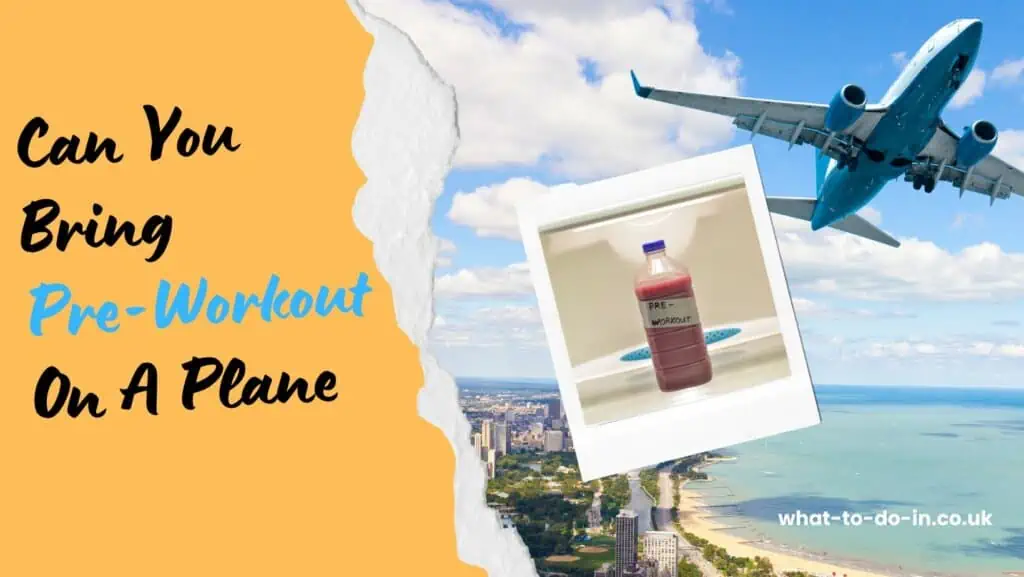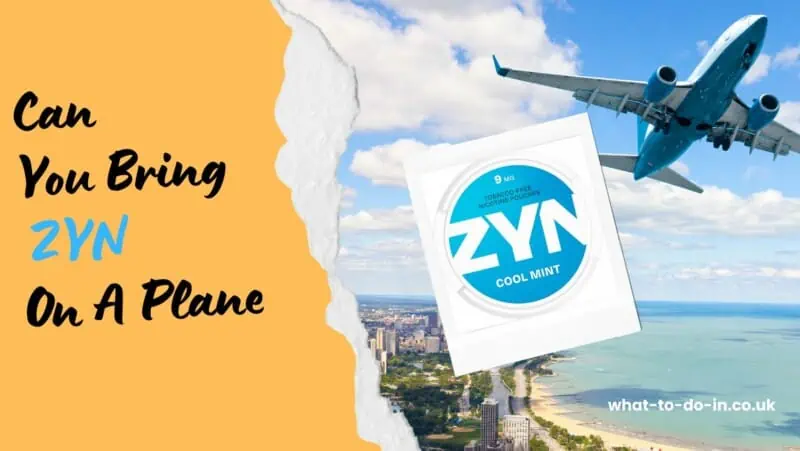Travelers often wonder whether they can bring their fitness supplements, such as preworkout, with them when flying. Preworkout supplements, typically consumed to enhance athletic performance and endurance, have become a staple in many fitness enthusiasts’ routines. The transportation of such items by air is governed by strict regulations due to security concerns and the potential for substances to be misinterpreted as hazardous.
Initially, the regulation of substances aboard aircraft was less stringent. However, with the evolving landscape of international security and the introduction of new policies, particularly after the events of September 11, 2001, authorities like the Transportation Security Administration (TSA) in the United States, and analogous agencies around the world, have implemented strict guidelines for what passengers can bring on board. This includes limitations on liquids, gels, and powders, which has a direct impact on those wishing to carry their workout supplements, including preworkout powders and drinks.
Today, the ability to travel with preworkout supplements hinges on adherence to these established guidelines. Passengers are generally permitted to carry on or check in nutritional supplements, yet they must be mindful of restrictions on quantities, packaging, and disclose of such substances during the security screening process. The nuances of these regulations can influence a traveler’s packing strategy, especially for those who prioritize their fitness regimen even while away from home.
Can You Take Preworkout on a Plane?
When it comes to traveling with preworkout supplements, the Transportation Security Administration (TSA) allows passengers to take them on a plane in both carry-on and checked luggage. However, there are certain regulations that must be adhered to, especially if the preworkout is in liquid form. For carry-on bags, liquids must be in containers of 3.4 ounces (100 milliliters) or less and all containers must fit in a single, clear, quart-sized bag. Powdered supplements, on the other hand, may require additional screening if they are in quantities greater than 12 ounces (350 milliliters). Understanding these guidelines ensures that fitness enthusiasts can maintain their workout routines even while traveling. Continue reading to explore the detailed requirements and tips for traveling with preworkout supplements on a plane.
Understanding TSA Regulations for Carry-On Supplements
Travelers who wish to bring preworkout supplements on board domestic flights in the United States should be familiar with the Transportation Security Administration (TSA) guidelines. The TSA has specific regulations for carrying powders and liquids which may affect how passengers pack their preworkout supplements. The most current guidelines can be referenced on the TSA website.
Packing Preworkout Powders
- Powders over 12 ounces (350 ml) may require additional screening.
- Packaging should be secure to avoid spills during inspection.
- While not required, placing powders in a clear, resealable bag can facilitate quicker screening.
- Labeling the supplement with its original packaging can provide clarity to TSA agents.
- Bulk packaging may lead to further inspection and possibly even disposal if it cannot be identified conclusively.
Carrying Preworkout Liquids
- Liquids must adhere to the 3-1-1 liquids rule, which allows for containers of 3.4 ounces (100 milliliters) or less.
- All liquid containers should fit comfortably in one, clear, quart-sized, resealable bag.
- Passengers should be prepared to remove this bag from their carry-on for separate screening.
- Larger amounts of medically necessary liquids are permitted but must be declared to TSA officers before screening begins.
Tips for Smooth Screening of Preworkout Supplements
- Keep supplements in their original packaging when possible.
- If traveling with large quantities, consider shipping supplements to your destination in advance.
- Conduct a pre-travel check by consulting the TSA website or using the “Can I Bring?” tool on the TSA app.
- Arrive at the airport earlier to account for any additional screening time.
- Be upfront with TSA officers about any preworkout supplements in your carry-on.
Special Considerations and Exemptions
Passengers with special dietary requirements or medical conditions that necessitate carrying larger quantities of preworkout supplements in liquid form may be exempt from the standard limits. However, proper documentation and prior notification to TSA agents at the security checkpoint are required for such exemptions to be considered.
Impact of Preworkout Supplements on Flight Well-being
Using preworkout supplements before or during a flight can affect hydration levels and energy. Passengers should consider the duration of their flight and how their body might react to supplements when confined to an aircraft cabin. It is also advisable to stay well-hydrated, as preworkout supplements often contain caffeine and other ingredients that may lead to dehydration, especially in the dry cabin environment.
| ✔ Pros | ✘ Cons |
|---|---|
| Convenience of having your own supplement ready for use | Potential issues with airport security if not properly packaged |
| Can help maintain your workout routine while travelling | Liquid preworkouts might exceed liquid restrictions for carry-on luggage |
| No need to search for or buy a preworkout at your destination | Preworkout powders can look suspicious on x-ray machines |
| Ensures you have the exact brand and flavor you prefer | Potential legal issues if ingredients are banned in certain countries |
| May save money compared to purchasing at a higher price at the destination | Space and weight used in your luggage |
International Air Transport Association (IATA) Guidelines
The International Air Transport Association (IATA) provides regulations for the safe transport of goods and substances on aircraft. When flying internationally with preworkout supplements, it’s crucial to adhere to IATA’s guidelines, particularly those concerning the transport of powders and liquids, as preworkout supplements can come in these forms. The IATA regulations often focus on:
- Quantity limits for powders and liquids in carry-on baggage
- Packaging requirements to prevent spills or contamination
- Declaration of substances when required by the airline or security
For specific guidelines on carrying preworkout supplements, passengers should consult the IATA Dangerous Goods Regulations and the IATA website for the most current information. (IATA Dangerous Goods Regulations)
Country Specific Regulations
When traveling with preworkout supplements, it’s important to be aware that regulations can vary significantly from one country to another. Each country has its own set of rules concerning the importation and transportation of supplements and substances. These regulations are designed to prevent the entry of potentially harmful or prohibited substances and to ensure the safety and well-being of travelers and citizens.
- United Kingdom: UK Government Hand Luggage Restrictions
- Europe: EU Aviation Security Policy
- Canada: Canadian Air Transport Security Authority
- Australia: Australian Department of Home Affairs
- New Zealand: New Zealand Civil Aviation Authority
- Asia: Regulations may vary by country; travelers should check with the respective country’s aviation authority.
- Singapore: Civil Aviation Authority of Singapore Baggage Guide
10 Airline-Specific Regulations for Flying with Preworkout
Airlines may have their own specific policies regarding the transport of preworkout supplements. It is essential for passengers to review the airline’s regulations before flying to ensure compliance and avoid any issues at the airport. Below are examples of airline-specific regulations for carrying preworkout supplements:
- American Airlines: American Airlines Restricted Items
- Delta Air Lines: Delta Prohibited or Restricted Items
- United Airlines: United Airlines Dangerous Goods
- Southwest Airlines: Southwest Airlines Baggage Policies
- British Airways: British Airways Prohibited and Restricted Items
- Lufthansa: Lufthansa Baggage Regulations
- Air Canada: Air Canada Restricted and Prohibited Items
- Qantas: Qantas Carry-On Baggage
- Air New Zealand: Air New Zealand Restricted Items
- Emirates: Emirates Battery Policy (While not specific to preworkout, it provides guidance on related items that may be part of a traveler’s fitness gear)
Packing Pre-Workout for Carry-On Luggage
Traveling doesn’t mean you have to compromise on your fitness routine or the supplements that help you maximize your workouts. When packing pre-workout in your carry-on luggage, consider the Transportation Security Administration (TSA) rules:
- Understand Liquid Restrictions: If your pre-workout is in liquid form, it must adhere to the 3-1-1 liquids rule. This means each container should be 3.4 ounces (100 milliliters) or less and must fit in a single, clear, quart-sized bag.
- Pack Pre-Workout Powders: Powders are less scrutinized but consider limiting quantities to what would be needed for the duration of your trip. If the amount exceeds 12 ounces (350 milliliters), it may require additional screening.
- Original Packaging: To avoid any confusion or delays at security, keep supplements in their original containers with labels intact.
- Use Small Containers: If space is limited, transfer the exact amount you’ll need into a smaller container, clearly labeled to indicate its contents.
Packing Pre-Workout for Hold Luggage
When it comes to checked baggage, you have a bit more flexibility in packing larger quantities of your pre-workout supplement:
- Check Airline Regulations: While there aren’t any liquid restrictions for checked bags, it’s wise to check with the airline for any specific limitations or policies.
- Prevent Spills: Seal pre-workout containers in plastic bags or use travel-sized, leak-proof containers to avoid any spillage that could damage your belongings.
- Padding: Your luggage will be tossed around, so cushion your pre-workout containers within your clothes or bubble wrap to prevent damage.
- Inventory: Make a note of how much pre-workout you’re packing in case of loss. Keeping a list handy can be helpful for insurance purposes or if you need to file a claim.
Travel-Friendly Fitness Supplements
When preparing for a flight, in addition to your preworkout, consider packing portable protein powders, individual BCAA (Branched-Chain Amino Acid) packets, and electrolyte tablets to maintain your nutrition and hydration levels. Compact resistance bands and a lightweight jump rope can also be easily stowed in your carry-on, allowing you to keep up with your fitness routine no matter where you are. For convenience, opt for single-serving sachets of your favorite supplements, and don’t forget a reusable water bottle to mix your drinks and stay hydrated throughout your journey.
FAQ’s About Can you Bring Preworkout on a Plane?
When it comes to air travel, many fitness enthusiasts like to keep up with their workout routine. Therefore, they may wonder whether they can bring their preworkout supplements on a plane. Below, we’ve compiled some of the most frequently asked questions to help clarify the rules and provide helpful information for travelers wanting to bring their fitness supplements on board.
Can I bring preworkout in powder form on a plane?
Yes, you can bring preworkout in powder form on a plane. However, if the amount exceeds 350ml (12 ounces), you must place it in your checked luggage. Quantities less than this are allowed in your carry-on, but they may require additional screening by TSA agents.
Is it necessary to keep preworkout in its original packaging while traveling?
While not strictly necessary, it is highly recommended to keep preworkout in its original packaging. This can help expedite the screening process and also prevent any misunderstandings regarding the nature of the substance.
Can liquid preworkout supplements be carried in a carry-on bag?
Liquid preworkout supplements are subject to the TSA’s liquids rule. This means they must be in containers of 3.4 ounces (100 milliliters) or less and placed in a single, clear, quart-sized bag.
Are there any restrictions on the amount of preworkout I can bring in my checked luggage?
There are generally no restrictions on the amount of preworkout you can bring in checked luggage. However, it’s always wise to check with the airline for any specific rules or limitations on supplements.
Do I need to declare my preworkout when going through airport security?
You do not need to declare your preworkout unless it is in liquid form and exceeds the allowed limit of 3.4 ounces. Solid forms of preworkout are not typically declared but may be subject to screening if you bring a large quantity.
Will airport security confiscate my preworkout?
Airport security should not confiscate your preworkout if it complies with the rules for powders or liquids. If the preworkout is in a suspicious or unidentifiable condition, additional checks may be performed.
Are there any countries where it is forbidden to bring preworkout?
Most countries allow the import of preworkout supplements for personal use, but some countries may have restrictions or prohibitions on certain ingredients. It’s crucial to check the regulations of your destination country before traveling.
Can I bring preworkout in hand luggage if I’m traveling internationally?
Generally, you can bring preworkout in your hand luggage when traveling internationally, but be mindful of the liquid and powder rules which may vary by country. You should also be aware of destination country rules.
What’s the best way to pack preworkout for air travel?
The best way to pack preworkout for air travel is in its original packaging inside a sealed bag to prevent spills. For powders, ensure they’re easily accessible in case additional screening is necessary.
If I’m questioned about my preworkout at the airport, what should I do?
If you’re questioned about your preworkout at the airport, remain calm and explain that it is a dietary supplement for your workout routine. Having the original packaging and, if possible, a receipt can also help clarify the situation.
Packing It All Up
When considering bringing preworkout supplements on a plane, it’s important to remember that both TSA regulations and airline policies must be adhered to in order to pass through security smoothly. As outlined, preworkout powders and liquids can be carried on board in your hand luggage, provided they meet specific requirements. Powders should be kept in containers smaller than 12 ounces (350 ml) to avoid additional screening and liquids must comply with the 3-1-1 liquids rule, which allows for containers of 3.4 ounces (100 milliliters) or less, all fitting within a single quart-sized bag.
Additionally, to prevent delays and ensure a hassle-free security check, it’s advisable to keep your preworkout supplements easily accessible for screening. Labeling the containers clearly can help security personnel quickly identify the contents, and separating them from your other belongings can speed up the process. Awareness of any restrictions on the volume of liquid supplements and the potential need for additional screening for larger quantities of powders is crucial. Being prepared by checking both the TSA’s guidelines and the specific airline’s policies beforehand will make for a seamless travel experience while keeping your fitness routine on track.






